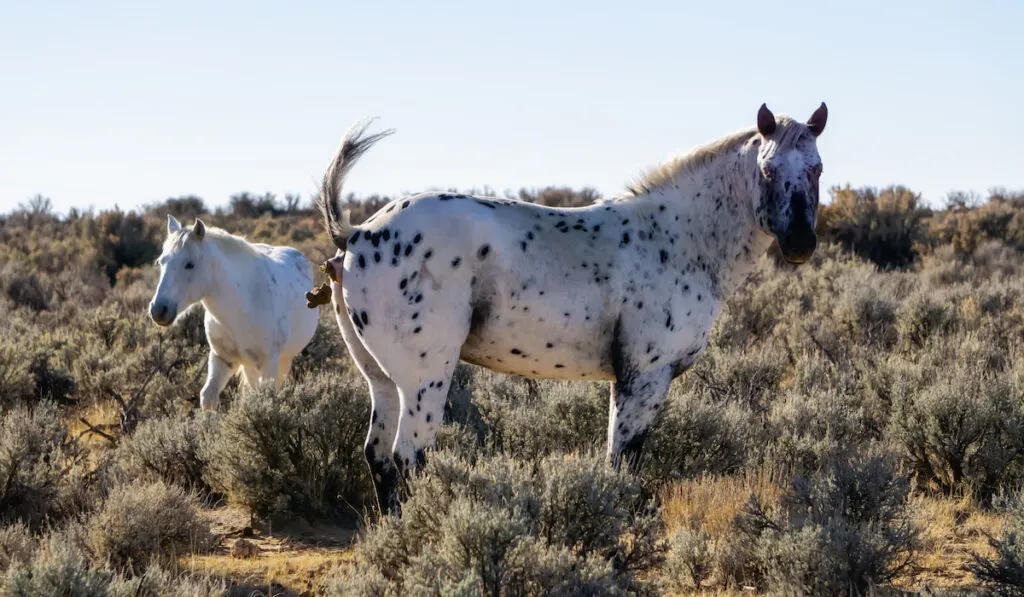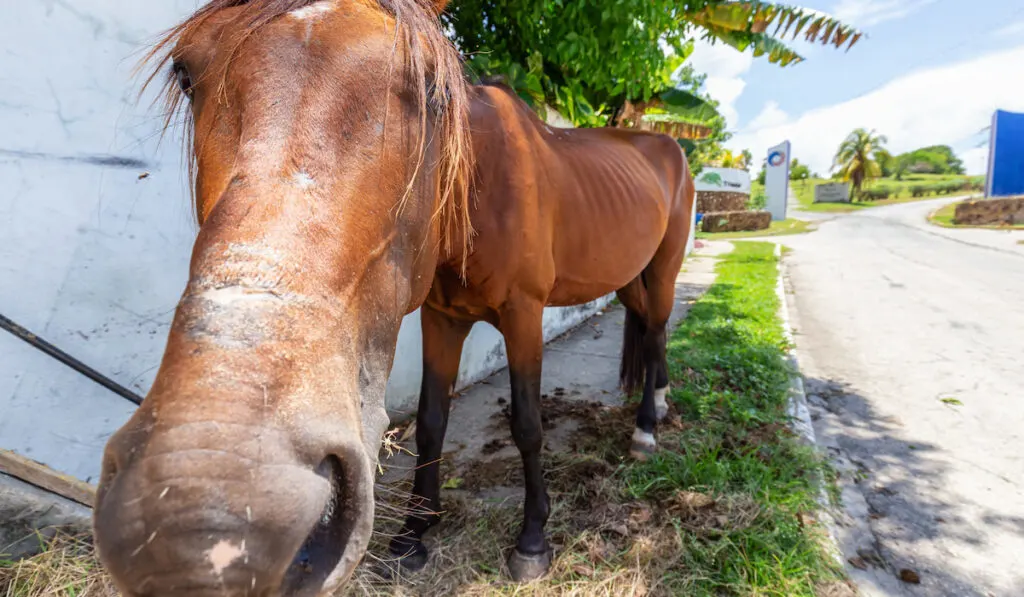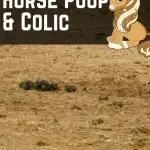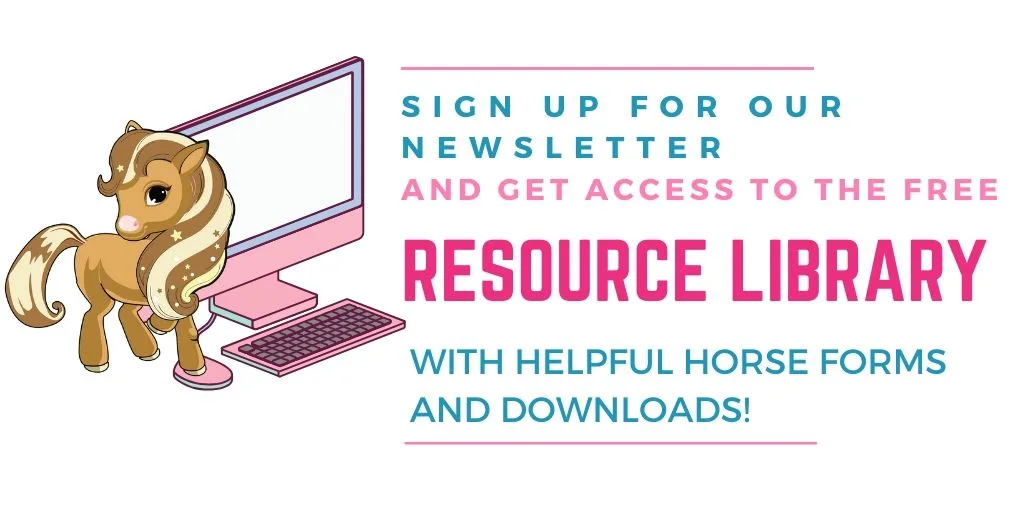When it comes to colicing horses, poop, or lack thereof, is something horsemen will use to determine if a horse is colicing. The truth is, horse poop isn’t as definitive an answer as you might think. Let’s have a look at some of the frequently asked questions about horse poop and colic.

Table of Contents
1. Will a Horse With Colic Poop?
Colicing horses can poop, but lack of poop can be a symptom of colic. I know, this sounds very confusing. The reason some colicing horses poop is because not all colics result in a blockage of the intestines. There are many different types of colic in horses. Some of them, like gas colic or spasmodic colic, will still cause the horse to show signs of discomfort and pain but won’t limit their ability to poop.
Horses that are showing colic symptoms and who are not pooping are more likely to be suffering from more severe types of colic like impaction colic or twisted intestines.
2. Poop Is a Diagnostic Tool for Colic
Did you know that your vet can use your horse’s poop as a diagnostic tool to help figure out why they are colicing? If you think your horse might be colicing, first call your vet, but then, be sure to notice if / when he has been pooping. If he poops while you are waiting for the vet, make sure to leave it so the vet can examine it if he needs to.
The vet can look at the poop for clues to your horse’s colic. A high number of worms in the horse’s poop might indicate that a high worm load is causing the issue. Sand, on the other hand, would make sand colic the most likely cause. The information your vet is able to obtain from your horse’s poop (or lack thereof) will help him determine his treatment.
3. Fresh Grass Might Help Your Horse Poop
If your horse isn’t pooping but he still has an appetite, try grazing him on some fresh, green lawn grass. Whether it’s the high moisture or just something specific to fresh grass, it seems to be good at getting horses to poop. According to Dr. David Ramey, this is mostly a test that can provide useful information to your vet as well. (source)
4. Regular Fecal Analysis Can Help Prevent Some Colics
Knowing that your horse has a problem before it becomes a problem, can be a great way to prevent colic. Regular fecal analysis can allow you to keep an eye on your horse’s worm count. Worm loads can be a factor in causing colic in some horses.
Different horse wormers target different species of worms. Knowing what kind of worms your horse has will enable you and your vet to make the most informed deworming choice.
Aside from worms, a fecal analysis can sometimes detect abnormal quantities of sand in your horse’s manure. While you may not be able to limit sand intake 100% for any horse, there are steps you can take to reduce it as well as supplements that can be given to help your horse clear sand from his system.

5. Colic Can Sometimes Lead to Diarrhea
For adult horses, diarrhea isn’t normally present. An adult horse that is having a prolonged episode of diarrhea is likely to be ill and a veterinary exam should probably be performed.
Salmonella and Clostridium bacteria are common causes of diarrhea in horses. They can take up residence in your horse’s digestive tract any time the balance of good and bad bacteria is upset. This can be after a stressful event, change in feed, or even after a bout of colic.
Of course, I’m not saying that all diarrhea in horses is caused by colic. The truth is, loose stools in horses can be caused by a number of different things.
Diarrhea can also be caused by viruses, toxins and sand. Whatever the case may be, if your horse is experiencing diarrhea, you may want to give your vet a call for her advice on how to treat and/or how to determine when a veterinary visit is warranted.
Final Thoughts
When a horse isn’t pooping, the first thing most equestrians think of is colic. While a lack of manure production is one of many signs of colic, a horse can poop if it is colicing. Our horse’s poop can tell us a lot about him and even help to prevent episodes of colic. No matter what your horse’s manure situation is, remember to give your vet a call any time you suspect colic. Colic has such a big potential to be deadly that the sooner you can get your horse help, the better.
Resources
https://equineclinic.com/equine-diarrhea-causes-treatments-and-complications/
Related Posts
- Horses, Colic and Beer: 5 Things You Need To Know
- Free Printable Horse Health Record Form
- Average Lifespan of Horses and Ponies (with Chart)


